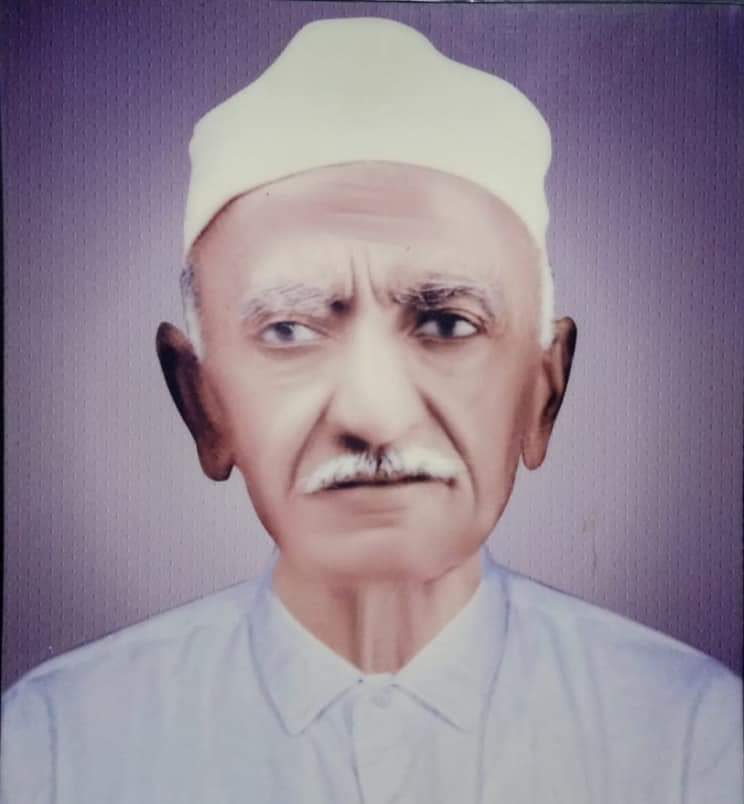
Khemchand Asnani was a scholar, philosopher, social reformer, poet and dramatist, who spent his entire life to promote education and create awareness about mental and physical health of masses.
Bhagat Khemchand Asnani, was born on 1st April 1881 in Asnani Lohana family in Mithi. His father’s name was Bhimu Mal Asnani and the mother was Ganga Bai. His grandfather had migrated from Laar (Lower Sindh) and settled in Mithi in the last decade of Talpur rule in Sindh.
Kheman, as he was popularly known, was called Bhagat although, he was not a traditional or religious Bhagat who use to sing the bhajans and religious hymns. He didn’t follow the religion just for sake of belief.
Khemchand had passed only Sindhi final exam, as at that time there used to be seven grades in Gujarati education and six grades in Sindhi. However he was a brilliant student who used to study books since childhood and for having vast study, he became a scholar and philosopher. In his daily life, he devoted six hours to study the books.
Khemchand was a traveler, social reformer, teacher, poet, writer, dramatist and promotor of social, mental and health well-being. After the marriage and passing the final, he joined government job in revenue department as clerk in1899 at the age of sixteen. He was first posted at Nagarparkar, and then at Mithi, Umerkot, Diplo, Chhachhro, Khipro and Sanghar Talukas of old Tharparkar district and retired from government service in 1936. He was known as hard-working and honest officer.
He personally observed and documented the human miseries and disasters of the notorious drought of 1899 in Nagarparkar and other parts of Thar.
Khemchand was a true social reformer, who dedicated entire life in rendering service to poor and needy.
He had a vast circle of well-wishers and friends across Sindh and subcontinent. Sawami Leela Shah, Sawami Krishnanand, Dr. Harnamdas and Prof. Hassanand Jadugar, B T Shahani were his friends and admirers besides many from Tharparkar namely, Rana Jaswant Singh Ji, Vishandas Jeeerajmal Rathore, Girdharilal Lakhani (father of Dr. Herchandrai Lakhani), Pitamberdas Varde Khatri and many others from different parts of the country.
He traveled in the nook and corner of Indus Valley provinces from Himalayas to Kutch. He organized a grand assembly of communities and panchayats in Mithi in 1927, and myriad of social workers and scholars had joined. This was the first big gathering of people and reformers in the modern history of Tharparkar. He founded a committee of youths and staged a tableau in Mithi in 1933.
Bhagat Khemchand would run a class for disciples and citizens, where he taught various subjects of social science, ethics and current affairs and discussed social issues and taboos to find out solutions. He established an ‘akhara’ (gymnasium) in Mithi in 1902, for physical training and exercise for youths and students.
He played an active role in serving sick and poor during the deadly epidemic in Mithi in 1918-20, in which about six hundred persons died in Mithi alone.
He created a Fund to raise resources and established girls school and vocational center and libraries in 1939. He established three libraries – one at Lohana locality, the other at Maheshwari locality and third near Akhara. He would command the respect of masses, his personal integrity and confessional power was unparalleled. He was extraordinarily-confessional in telling about the sins he committed, and illicit contacts he had in his youth life and early period of job. A noted scholar said “After MK Gandhi and Nelson Mandela, he is third person, about whom I learnt such a confessional boldness.”
He authored many books on social subjects and still a long list of books and poetic work yet to be published. The drama ‘Chandra Hassan’ wrote by Bhagat Khemchand staged in Mithi in 1955, was the first of its kind in local history of Tharparkar. (Senior writer Valiram Valabh and Haji Muhammad Dal performed in the drama).
More details of life of Bhagat Khemchand could be found in his biography ‘Mu Wat Na Peti, Na Kulf Kunji’ (Neither I have any suitcase nor the lock and the key), compiled by Valiran Vallabh. His other book is ‘Qudrati Jeewan’ (Natural Life), compiled by Dileep Kothari.
A humble person and believer of disciplined life, Bhagat Khemchand passed away in Mithi on March 19, 1974. He will be remembered for earnestness, generosity and plurality for ages to come.
_____________________
Courtesy: Facebook Wall of Dr. Ashok Bakhtani. And also of Jayanti Thakkur (Originally from Mithi and currently based in Gandhidham, India) and Mokhi Media